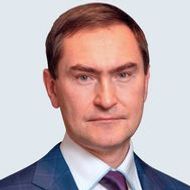HSE University Leads the AI Alliance Ranking

The AI Alliance Russia has released a new ranking of Russian universities based on the quality of education in the field of AI. Similar to last year, HSE University has joined the leaders in A+ group alongside MIPT and ITMO. A total of 207 universities from 69 Russian regions participated in the ranking. In 2024, over 35,000 students were enrolled in AI-related programmes at these universities.
This second edition of the ranking focuses on the development of AI expertise among regional universities, highlighting individual examples of leading institutions by the end of the year. The key criteria for evaluating universities was the salary of prospective specialists within a year of completing their studies. At the top universities of the ranking, graduates' average salaries exceed 200,000 roubles.
The university ranking was created by the AI Alliance Russia and was first published last year. It was based on both open and specially collected data about the quality of education at universities. This year the AI Alliance conducted three studies: an extended survey of employers (more than 170 companies from 12 different industries), a survey of students, and a survey of universities. Only universities with bachelor's and/or specialist programmes in the field of AI were considered for the ranking.
The AI Alliance unites technology companies in Russia that are focused on developing artificial intelligence and helping the country lead the global market in this area. Members of the alliance include SBER, Gazprom Neft, Yandex, VK, Russian Direct Investment Fund, Sibur, Uralchem, Rusagro, Severstal, and Samolet.

Alexey Masyutin, Director of the AI and Digital Science Institute, HSE University
‘Speaking about various factors that are taken into account in the ranking, I would like to emphasize the importance of A* publications of university lecturers, as well as the number of joint educational programmes with companies. The first indicator is extremely important. If there are no leading researchers among the programme teachers, students will inevitably lack the skills to apply and develop technologies. And without the involvement of companies, it will be difficult to create products and services based on those technologies. HSE University pays great attention to both of these factors.’

Alexander Vedyakhin, First Deputy Chairman of the Executive Board of Sberbank
‘Together with our partners at the AI Alliance, we published a new university ranking on the quality of AI specialist training, which includes 207 universities. This ranking serves as a tool for the government for assessing the current situation in the field of AI training.’

Alexander Krainov, Director of AI Technologies development, Yandex
‘This year, the ranking underwent several modifications. The number of scientific publications considered has increased, and we started analysing which universities students are applying for the best master’s programmes in AI. Next year, we plan to continue developing and improving the ranking.’
See also:
AI Predicts Behaviour of Quantum Systems
Scientists from HSE University, in collaboration with researchers from the University of Southern California, have developed an algorithm that rapidly and accurately predicts the behaviour of quantum systems, from quantum computers to solar panels. This methodology enabled the simulation of processes in the MoS₂ semiconductor and revealed that the movement of charged particles is influenced not only by the number of defects but also by their location. These defects can either slow down or accelerate charge transport, leading to effects that were previously difficult to account for with standard methods. The study has been published in Proceedings of the National Academy of Sciences (PNAS).
‘Services Must Be Flexible’: How Governments Can Use Artificial Intelligence
The HSE International Laboratory for Digital Transformation in Public Administration held a roundtable titled ‘Artificial Intelligence in Public Administration: Current Trends.’ Scholars from Israel, China, and Russia discussed which public services AI can enhance and what key factors must be considered when adopting new technologies.
Artificial Intelligence Improves Risk Prediction of Complex Diseases
Neural network models developed at the HSE AI Research Centre have significantly improved the prediction of risks for obesity, type 1 diabetes, psoriasis, and other complex diseases. A joint study with Genotek Ltd showed that deep learning algorithms outperform traditional methods, particularly in cases involving complex gene interactions (epistasis). The findings have been published in Frontiers in Medicine.
Artificial Intelligence as a Catalyst for Sustainable Development
Artificial intelligence is transforming every aspect of life, expanding both our capabilities and our boundaries. At the same time, it presents new challenges for humanity, including concerns about safety, ethics, and environmental sustainability. Today, each neural network leaves a significant carbon footprint. However, with responsible management, AI has the potential to benefit the planet and become a cornerstone of a sustainable future economy. Panos Pardalos, Academic Supervisor of the Laboratory of Algorithms and Technologies for Network Analysis at the HSE Campus in Nizhny Novgorod, emphasised this point as he addressed the XXV Yasin (April) International Academic Conference on Economic and Social Development.
HSE Develops Its Own MLOps Platform
HSE researchers have developed an MLOps platform called SmartMLOps. It has been created for artificial intelligence researchers who wish to transform their invention into a fully-fledged service. In the future, the platform may host AI assistants to simplify educational processes, provide medical support, offer consultations, and solve a wide range of other tasks. Creators of AI technologies will be able to obtain a ready-to-use service within just a few hours. Utilising HSE’s supercomputer, the service can be launched in just a few clicks.
‘HSE’s Industry Ties Are Invaluable’
Pan Zhengwu has spent the last seven years at HSE University—first as a student of the Bachelor’s in Software Engineering and now in the Master’s in System and Software Engineering at the Faculty of Computer Science. In addition to his busy academic schedule, he works as a mobile software engineer at Yandex and is an avid urban photographer. In his interview with the HSE News Service, Zhengwu talks about the challenges he faced when he first moved to Russia, shares his thoughts on ‘collaborating’ with AI, and reveals one of his top spots for taking photos in Moscow.
Scientists Present New Solution to Imbalanced Learning Problem
Specialists at the HSE Faculty of Computer Science and Sber AI Lab have developed a geometric oversampling technique known as Simplicial SMOTE. Tests on various datasets have shown that it significantly improves classification performance. This technique is particularly valuable in scenarios where rare cases are crucial, such as fraud detection or the diagnosis of rare diseases. The study's results are available on ArXiv.org, an open-access archive, and will be presented at the International Conference on Knowledge Discovery and Data Mining (KDD) in summer 2025 in Toronto, Canada.
Megascience, AI, and Supercomputers: HSE Expands Cooperation with JINR
Experts in computer technology from HSE University and the Joint Institute for Nuclear Research (JINR) discussed collaboration and joint projects at a meeting held at the Meshcheryakov Laboratory of Information Technologies (MLIT). HSE University was represented by Lev Shchur, Head of the Laboratory for Computational Physics at the HSE Tikhonov Moscow Institute of Electronics and Mathematics (HSE MIEM), as well as Denis Derkach and Fedor Ratnikov from the Laboratory of Methods for Big Data Analysis at the HSE Faculty of Computer Science.
AI vs AI: Scientists Develop Neural Networks to Detect Generated Text Insertions
A research team, including Alexander Shirnin from HSE University, has developed two models designed to detect AI-generated insertions in scientific texts. The AIpom system integrates two types of models: a decoder and an encoder. The Papilusion system is designed to detect modifications through synonyms and summarisation by neural networks, using one type of models: encoders. In the future, these models will assist in verifying the originality and credibility of scientific publications. Articles describing the Papilusion and AIpom systems have been published in the ACL Anthology Digital Archive.
HSE Researchers Develop Python Library for Analysing Eye Movements
A research team at HSE University has developed EyeFeatures, a Python library for analysing and modelling eye movement data. This tool is designed to simplify the work of scientists and developers by enabling them to efficiently process complex data and create predictive models.


